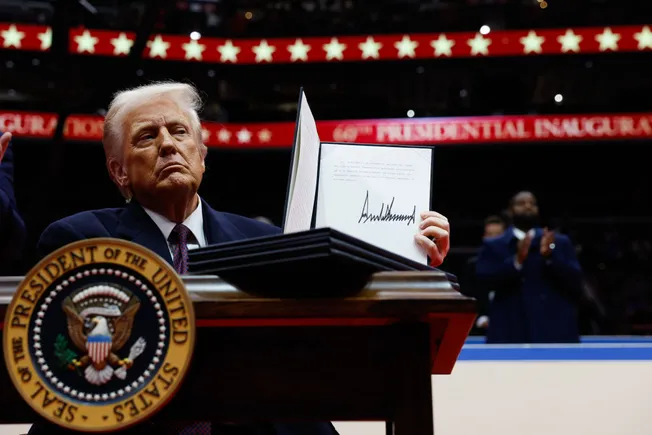Programs that carve out participation goals for traditionally underrepresented workers on federal construction contracts may be under fire, but they’re not dead yet.
That was the take from an attorney who focuses on these kinds of government initiatives after President Donald Trump issued several executive orders this week to eliminate diversity, equity and inclusion efforts in the federal government and revoked a ban on discrimination in federal contracting.
Chris Slottee, an attorney at Schwabe in Anchorage, Alaska, who specializes in federal contracting, said because the programs were created by Congress, it will take congressional action to eliminate them.
“The executive orders certainly indicate a certain hostility to disadvantaged business programs, and the agencies will take their lead from the President,” Slottee said in an email. “But, the programs have not been, and cannot be, as they have been enacted by Congress, ended by executive order.”

Chris Slottee
Courtesy of Schwabe
A slew of orders
Slottee’s comments came after Trump on Tuesday rescinded an executive order issued by President Lyndon Johnson in 1965 during the Civil Rights Movement to ban discrimination in federal contracts.
That move followed several other executive orders signed Monday aimed at eliminating the DEI priorities of the federal government set by former President Joe Biden. On Tuesday, Trump extended that focus to include private businesses, directing agencies to create plans to “encourage the private sector to end illegal discrimination and preferences, including DEI.”
On Wednesday, the White House issued a memo saying that Trump’s action “protects the civil rights of all Americans and expands individual opportunity by terminating radical DEI preferencing in federal contracting and directing federal agencies to relentlessly combat private sector discrimination.”
The Small Business Administration’s 8a program and the Department of Transportation’s Disadvantaged Business Enterprise program set aspirational goals for women and other traditionally underrepresented groups to receive portions of government construction contracts.
Those programs have faced legal challenges since the Supreme Court banned affirmative action in university admission practices in 2023. While the challenges put the programs under fire, they also prompted changes that could give them stronger legal footing.
For example, the SBA’s 8a program, and to some degree, DOT’s DBE program, no longer presume individuals are disadvantaged based on their sex or race, Slottee said. By eliminating race and sex as a basis for automatic participation, the programs could be shielded from Trump’s orders.
“Accordingly, the current small business contracting programs for disadvantaged businesses no longer involve race as a factor, and therefore may not be directly impacted,” Slottee said.
Diminished support
Although the changes may give the targeted programs cover, in general, Slottee said they will likely be weakened under the new administration.
“We can potentially see second order impacts on those programs, based on changing leadership at the SBA and the DOT, with a potential change in focus or lessening of support for these programs,” Slottee said.
There could be other impacts for contractors that work on federally funded projects from Trump’s actions this week as well, Slottee said.
“Presidents have historically used their ability to issue executive orders to attach strings to federal contracts, be it the obligation to have an affirmative action plan for employment, to mandated sick leave for Service Contract Act employees,” Slottee said. “President Trump’s executive orders may have the result of doing away with some of those regulatory requirements, thereby lessening the administrative burden on government contractors.”

